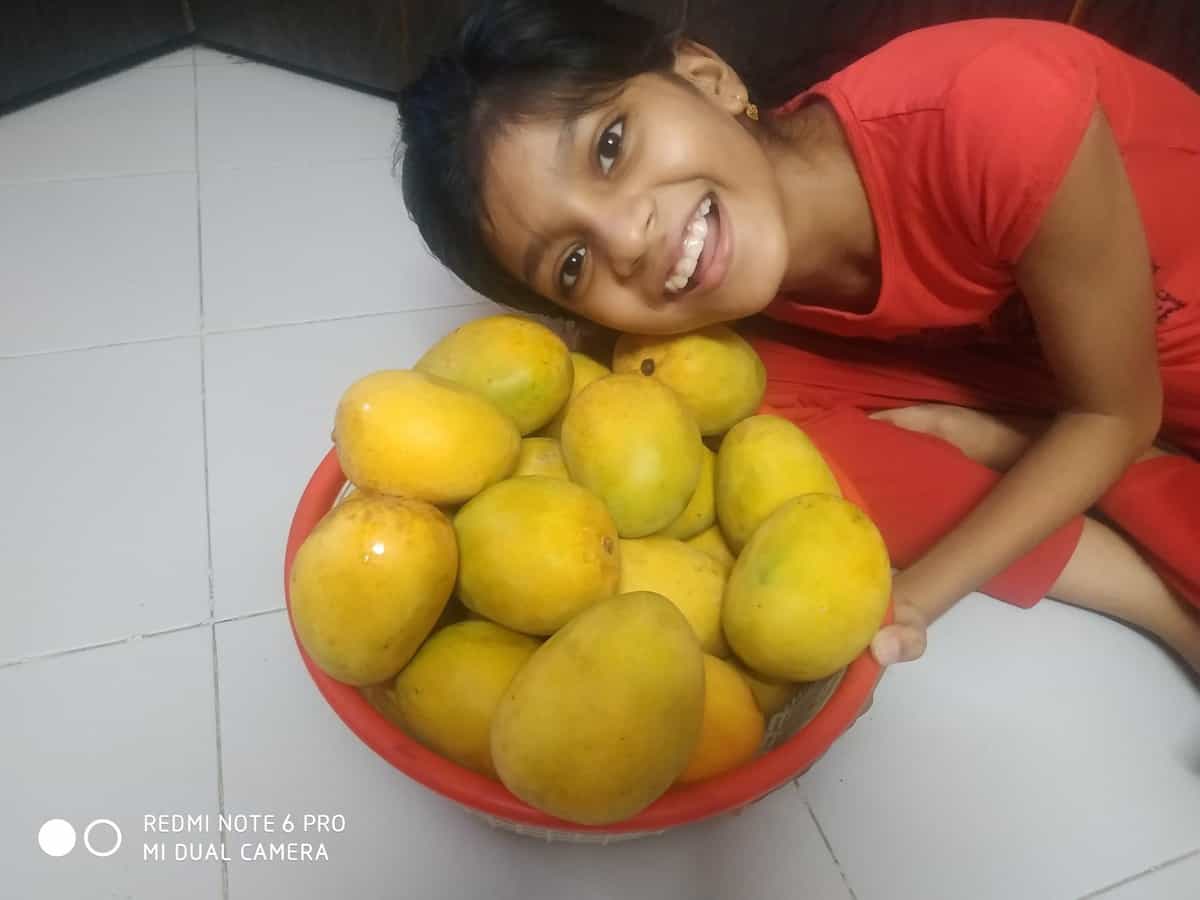
Today we bought two dozen mangoes for Rs 1200. My youngest daughter Zareen couldn’t hide her happiness over mangoes coming to the house. No fruit gives as much joy to children as the king among the fruits does.
In childhood and adolescence the mango season was eagerly awaited. Spending hours at the ancestral orchard, playing, singing, sleeping on the chowki (hard wooden bed) or charpoy under the shade of trees was like enjoying unbridled freedom. The rustle of leaves in the breeze, chirping of birds and keeping the cunning kawwa (crows) away from spoiling the fruits with their sharp beaks had their own fun.
My grandfather was very proud of this orchard because all the trees were planted by him and he lived long enough to see his grandchildren enjoy those fruits. He too would spend hours there. A devout man, he even performed his afternoon namaz by spreading out the prayer mat at the wooden cot.
The most interesting time was when the summer, moonlit nights descended on the rural setup. Some of the more adventurous boys played kabbadi in the night and, to wash away the cake of grime and dust formed due to heavy perspiration, jumped into a nearby pond. They played and played in the water till body began aching, returning home by the wee hours. Life in the village was simple, free and fun-filled. Koi lauta de woh din…
As the mangoes began ripening, we would look for the ready, pulpy ones among the bunches in the branches. Sometimes a mere jerk to the branch would detach the ripened mangoes from their mother tree. We would also use a long staff to poke at the pulpy mangoes and bring them down only to eat them quickly. Eating mangoes fresh from trees at the orchard was different from eating mangoes soaked in a balti-full of water.
How did we eat mangoes? Katkar ya chooskar? Well, I don’t need an Akshay Kumar to ask me this. When we were in the orchard we never needed to make pieces of the pulpy mangoes. And so we never kept a knife there. We just washed and ate them pressing hard, sucking the juice till they became like hollowed out and empty balls.
We never bought and seldom sold them. There was a tree gifted by my maternal grandfather to my mother in her maika. Every year mangoes–a variety called kishanbhog–would come to our house. Since her emotions were attached with these mangoes which came straight from the tree gifted to her, mummy took care to distribute them herself. Gone is mummy. So is her mango tree.
Ever since I planted myself in Mumbai decades ago, I have missed mangoes of my village orchards. Apart from buying them, I also get many baskets of them from friends annually.
But I miss those baskets of mangoes that would reach me fresh from friends’ orchards in coastal Konkan. “I am stuck in my village. There are so much Alfonso and other varieties of mangoes here. I regret I can’t send your share,” said my friend FM Thakur on phone from his village in Ratnagiri district.
Urdu-Marathi writer Vaqar Qadri who is also from Konkan but lives in my neighborhood would unfailingly send me a dozen mangoes but this year I have not heard from him.
Eminent surgeon Dr A R Undre too used to keep one carton of mangoes from his village orchard in Raigadh for me every year, but he too must be finding it difficult to fetch those awesome aam (mangoes) this year.
Well, I am not Mirza Ghalib who would get plenty of mangoes from the titular Mughal emperor Bahadur Shah Zafar and his many disciples. But I have a few friends who don’t forget to send mangoes. Talking of gifting mangoes, I remember eminent playwright and Bollywood script writer Javed Siddiqui recalling how late actor Farooque Shaikh would send him a basket of mangoes every year with a demand that he wanted the gutlis (kernels) back because he would sow them again into the soil at his orchard outside Mumbai. Well, no one has mercifully made such a demand on me while gifting mangoes. I am denied of those luscious, pulpy, sweet fruit thanks to this kambakht (moron) corona this year.
Mohammed Wajihuddin, a senior journalist, is associated with The Times of India, Mumbai. This piece has been picked up from his blog.

